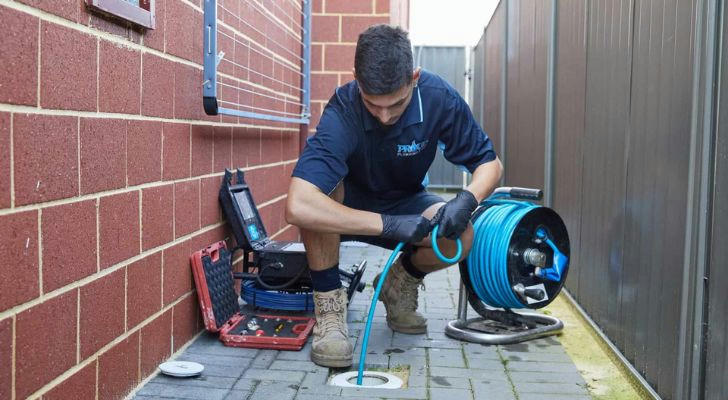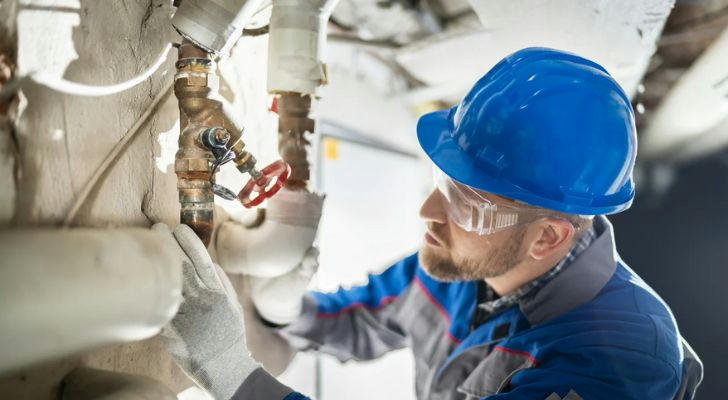Start Your Plumbing Career: What You Need to Know First
Plumbing is more than just fixing leaks—it's a stable, hands-on trade that offers competitive pay, job security, and the chance to build a long-term career without a college degree. With aging infrastructure and growing demand for skilled workers, plumbing remains one of the most reliable skilled trades in the job market today.

Why Choose a Plumbing Career?
Plumbers are essential in both residential and commercial settings. They install and maintain piping systems, troubleshoot water heaters, repair sewer lines, and ensure buildings meet plumbing codes.
Key benefits of the trade include:
- Strong job outlook: The U.S. Bureau of Labor Statistics projects over 20,000 new plumber jobs each year through 2032.
- Solid income: Median annual pay is around $60,000, with experienced union plumbers earning $80,000 or more.
- Low barrier to entry: No four-year degree required; most plumbers train through apprenticeships.
- Portable skills: Plumbing is in demand in all states and across both urban and rural areas.
If you enjoy hands-on work, problem-solving, and working independently, plumbing could be a great fit.
Step 1: Meet the Basic Requirements
Before starting your training, make sure you meet these standard qualifications:
- High school diploma or GED
- Minimum age: Usually 18 years old (some states allow apprenticeship enrollment at 17)
- Physical fitness: Plumbing often involves lifting, climbing, and kneeling
- Clean background check: Some licensing boards require it
In some areas, a valid driver’s license and reliable transportation are essential to travel to job sites.
Step 2: Enroll in a Pre-Apprenticeship or Trade Program
Many aspiring plumbers begin with a pre-apprenticeship program offered by vocational schools, unions, or community colleges. These programs typically last 6 to 12 months and cover:
- Basic plumbing tools and safety
- Reading blueprints and pipe layouts
- Local and national plumbing codes
- Math for measurements and water flow
Completing one of these programs can make you more competitive when applying for apprenticeships and help you decide if plumbing is truly right for you.
💡 Tip: Look for programs certified by the National Center for Construction Education and Research (NCCER) or endorsed by local trade unions.
Step 3: Apply for a Plumbing Apprenticeship
A plumbing apprenticeship is the most common and affordable way to enter the trade. These programs usually last 4 to 5 years and combine paid, on-the-job training with classroom instruction.
You can apply through:
- Local plumbing unions (e.g., UA Local 38, Local 1)
- Non-union employers or contractors
- State-sponsored apprenticeship programs
Apprentices typically start earning $18–$25/hour, with scheduled raises as they gain experience. Training includes working with experienced plumbers on tasks like pipe installation, soldering, backflow prevention, and fixture assembly.
🔧 Did you know? Many apprenticeships cover licensing exam fees, tools, and even benefits like healthcare and retirement plans.
Step 4: Get Licensed in Your State
Most states require plumbers to be licensed. After completing your apprenticeship, you’ll need to:
- Pass a licensing exam
- Document your training hours
- Pay the application fee
- Maintain liability insurance (in some areas)
Some states issue multiple levels of licenses, such as:
- Journeyman plumber – Can work independently but not pull permits
- Master plumber – Can run a business and supervise others
Check your state’s licensing board website for exact requirements.
Step 5: Advance Your Career
Once licensed, you can continue building your plumbing career in different directions:
- Residential plumbing – Common for houses, apartments, or small properties
- Commercial plumbing – Hospitals, schools, office buildings
- Specializations – Gas lines, fire suppression systems, green plumbing, or pipefitting
- Self-employment – Start your own plumbing business or become a subcontractor
Many plumbers also move into construction supervision, project estimating, or inspection roles later in their careers. Continuing education is key—especially as new technologies like tankless water heaters or greywater systems become more common.

Tools, Safety, and Work Conditions
Plumbing can be physically demanding. You’ll work both indoors and outdoors, sometimes in cramped or damp spaces. Safety is critical, and you'll use tools such as:
- Pipe cutters and threaders
- Wrenches and augers
- Soldering and welding gear
- Diagnostic equipment (e.g., video inspection cameras)
Wearing protective gear (gloves, goggles, kneepads) is standard, and employers often provide safety training.
Final Thoughts
A plumbing career is a high-demand, hands-on path with long-term earning potential and stability. Whether you're just out of school or making a career switch, starting as an apprentice plumber offers a chance to build a skill set that will always be needed—and get paid while doing it.
